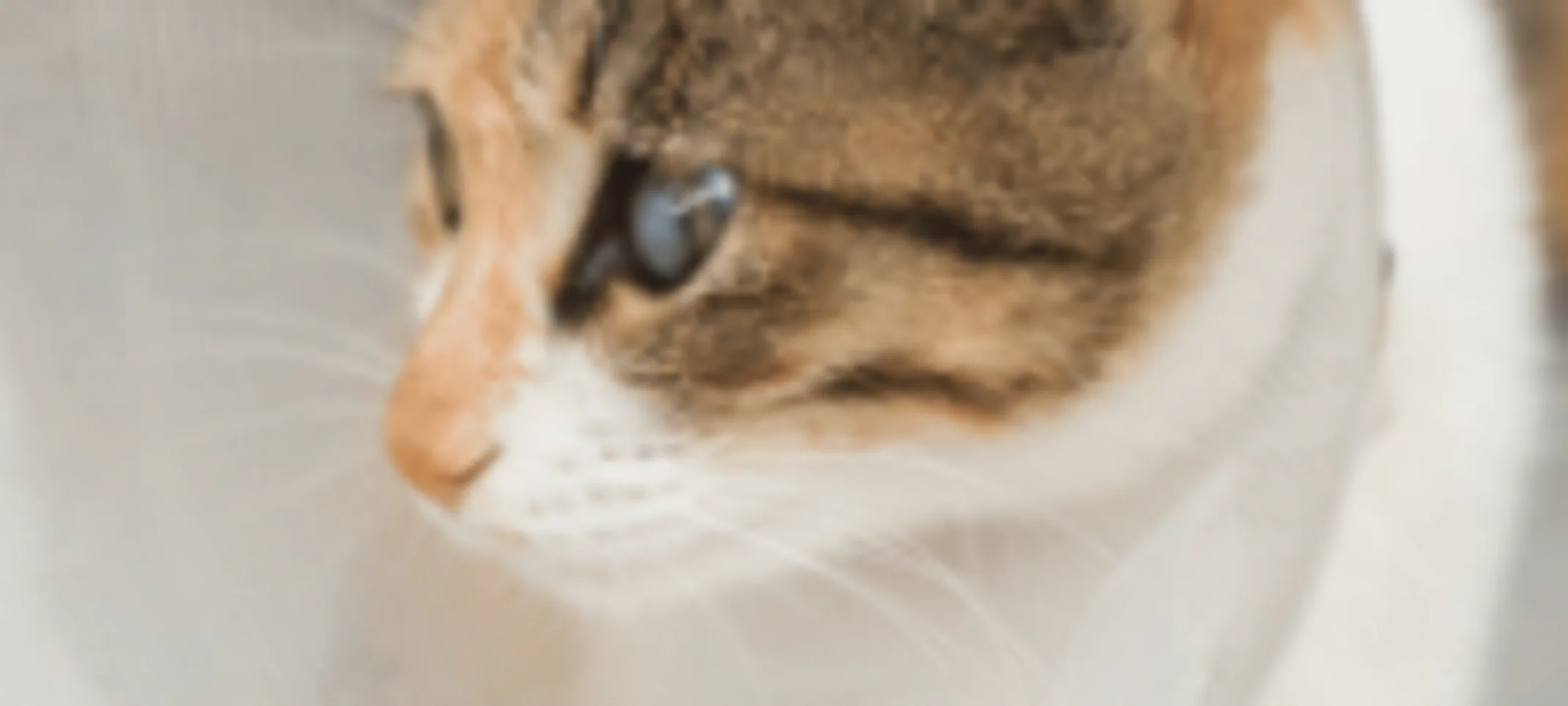Hayes Veterinary Hospital & Entrance Road Veterinary Clinic
Spay & Neuter
Spaying or neutering your pet can help them live a longer, healthier life, minimize behavior problems, and help control the population of unwanted dogs and cats.

Overview
According to the American Veterinary Medical Association, nearly 12,500 puppies are born in the United States each hour. Spaying females or castrating males eliminates unwanted litters, which contribute to thousands of euthanasia procedures and millions of stray animals. Additionally, these procedures can minimize behavior problems and help your pet live a longer, healthier life by reducing the likelihood of certain cancers and tumors.
When should I have my pet spayed or neutered?
In general, we recommend spaying or castrating small dogs and cats between 4-6 months of age. With large breed dogs, we often recommend delaying the surgery until they are 6-12 months of age.
Why should I have my pet spayed or neutered?
There are many benefits that come with spaying your female companion animal. They include helping to control the stray dog and cat population, eliminating the sometimes 'messy' heat cycles that attract male dogs, and preventing diseases in your pet such as pyometra (infection in the uterus) and mammary cancer. Additionally, research has shown that spayed pets live longer than pets that have not been spayed.
There are also many benefits that come with castrating your male companion animal. These benefits include helping to control the stray dog and cat population, eliminating undesirable and embarrassing behavior, and preventing diseases in your pet such as prostate disease and testicular cancer.
How is a spay or neutering surgery performed?
Spaying, also called an "ovariohysterectomy," is a surgical procedure in which both ovaries and uterus are completely removed from your female pet while they are under general anesthesia. Castrating refers to the surgical procedure in which both testicles are removed while your male pet is under general anesthesia.
Before the operation, we will assess your pet to minimize risk. While your pet is under anesthesia we take individual care for the safety of each pet. Our certified technicians and doctors are trained in advanced monitoring to ensure your pet's comfort.
Spay and Neuter in DeRidder and Leesville, LA
Vital for Cats & Dogs
Spay and neuter surgeries are extremely important for cats and dogs, both male and female. The surgery offers them a number of health benefits that prolong their lives and make them better companions.
In addition, spaying and neutering your pet has a positive impact on the greater pet community. It plays an important role in reducing the number of unwanted litters, many of which end up as strays, in shelters, or are euthanized.
At Hayes Veterinary Hospital in DeRidder, LA, and Entrance Road Veterinary Clinic in Leesville, LA, our veterinarians work with you to develop an appropriate timeline for your pet’s surgery so your pet can reap the most benefits from the procedure.
Additional Benefits of Spay and Neuter
Surgery offers your pet the following health and behavioral benefits:
Neutered dogs and cats are generally less aggressive.
Spayed cats and dogs no longer experience heat cycles which result in bleeding, yowling, and nervous behavior.
Neutered cats and dogs are less inclined to practice urine-marking and mounting behaviors.
Both spayed and neutered pets are less likely to attempt escape to find a mate.
Spayed dogs and cats have a significantly reduced risk of developing mammary gland tumors (the risk is even further reduced if your pet is spayed before her first heat cycle).
Neutered males have a reduced risk of prostate problems.
Spayed females have no chance of developing uterine, ovarian, or cervical cancers, or a pyometra, a deadly uterine infection.
Neutered dogs and cats have no risk of developing testicular cancer.
Debunking Spay and Neuter Myths
Many myths surround spay and neuter surgeries, and often deter owners from getting their pets fixed. To help you make better, informed decisions about your pet’s health, we’re debunking some of the most common of these spay and neuter myths:
Myth #1: My pet will get fat.
Not true! Weight gain is caused by too much food and too little exercise. With a healthy diet and regular physical activity, your pet will remain trim and fit.
Myth #2: Surgery will alter my pet’s personality.
While sterilization does help curb some undesirable behaviors such as mounting and aggression, it does not affect your pet’s personality or intelligence. In fact, it can make your pet a better listener and companion because they are no longer distracted by their reproductive urges.
Myth #3: It’s healthier to let my female pet have one litter before she’s spayed.
Nope, not true. Female cats and dogs have the most positive benefits if they’re spayed before their first heat cycle. Even letting your pet have one heat cycle significantly increases her chances of developing a mammary gland tumor later in life. Spay early for better health!
Myth #4: It’s too expensive.
The cost of a spay and neuter surgery is a one-time fee and is far less than the cost of caring for a pregnant pet, raising a litter, or treating a disease your pet develops later in life from not being spayed or neutered.
The price for surgery covers all of the safety precautions we take to ensure your pet comes out of surgery with minimal pain and is set up for a fast and smooth recovery.
Have any other questions about sterilization surgery?
Please don’t hesitate to call the knowledgeable staff at Hayes Veterinary Hospital: (337) 463-7011 or Entrance Road Veterinary Clinic: (337) 537-2454.
